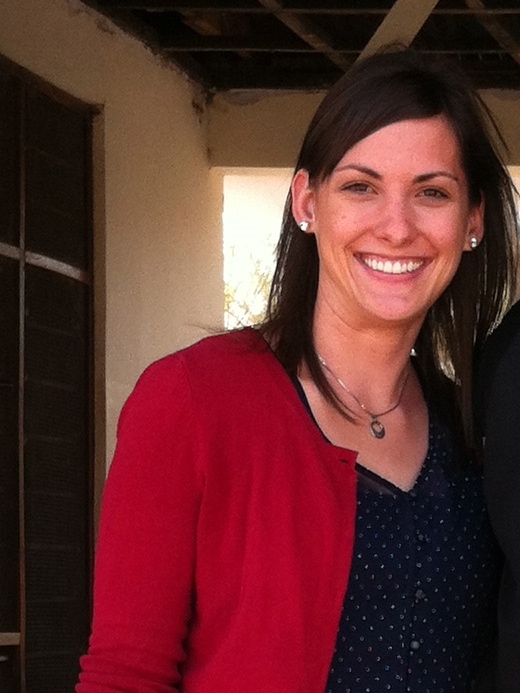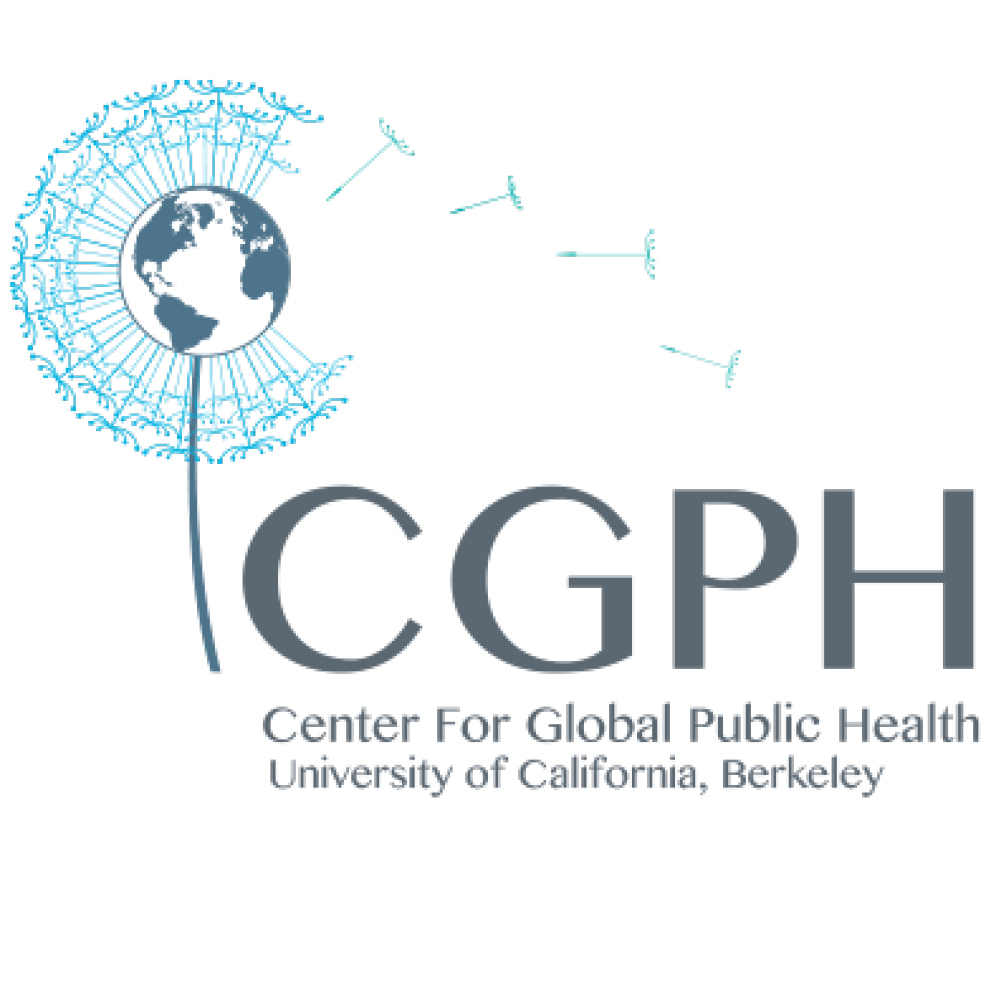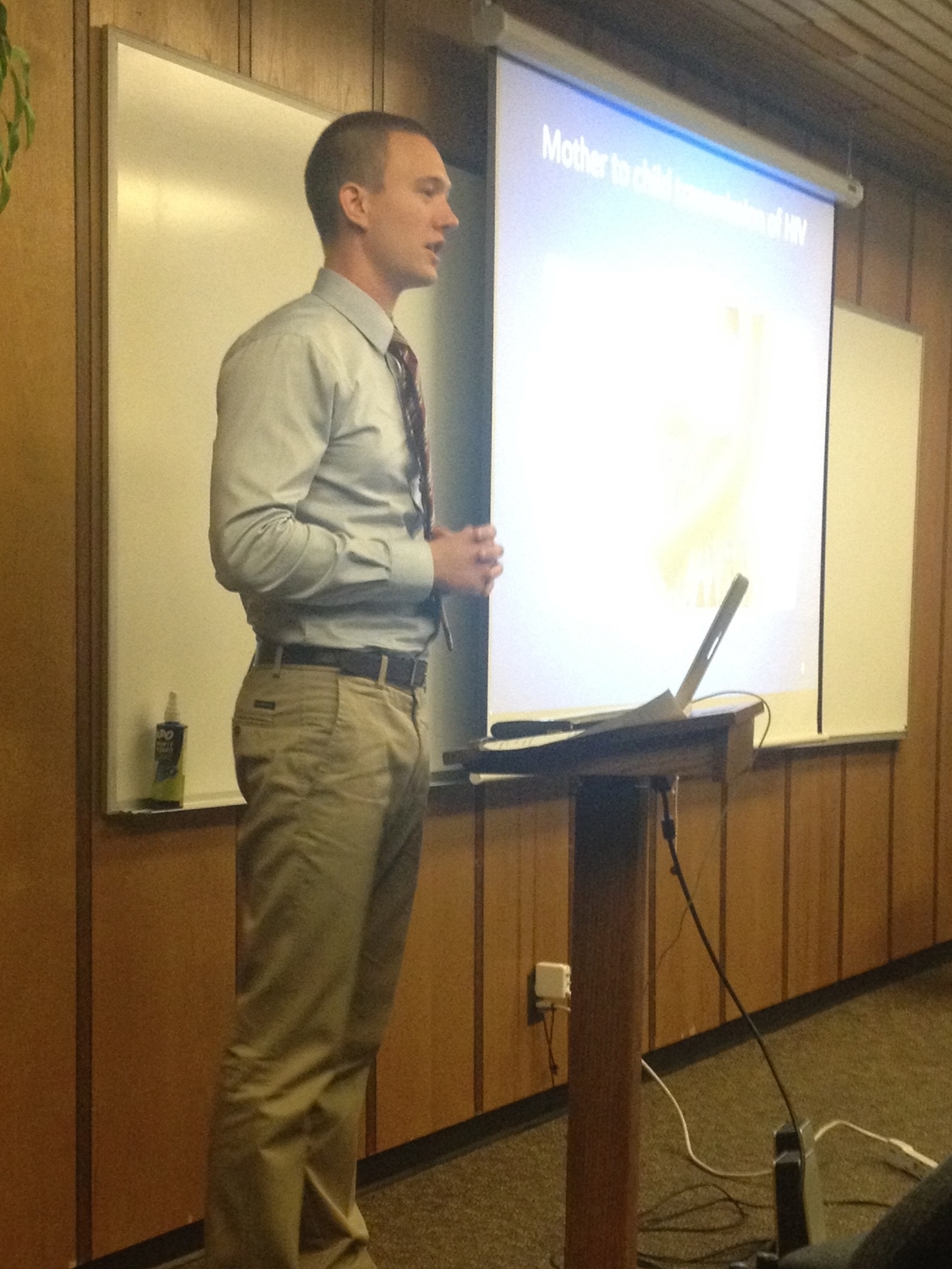We're very pleased to report that we've been given the opportunity by the U.S. National Institutes of Health to continue our work on HIV treatment adherence in Tanzania in collaboration with Health for a Prosperous Nation, the Ministry of Health, Community Development, Gender, Elderly, and Children, and Management and Development for Health. Over the next 5 years, we'll optimize the size and delivery of a short-term cash transfer and test its effectiveness for reducing HIV viral load in a cluster randomized trial. We'll use an innovative biometric delivery model linked to SMS and mobile banking developed by the communications firm Rasello. Read more about the new project here.
A week in Paris: The 9th International AIDS Society Conference on HIV Science
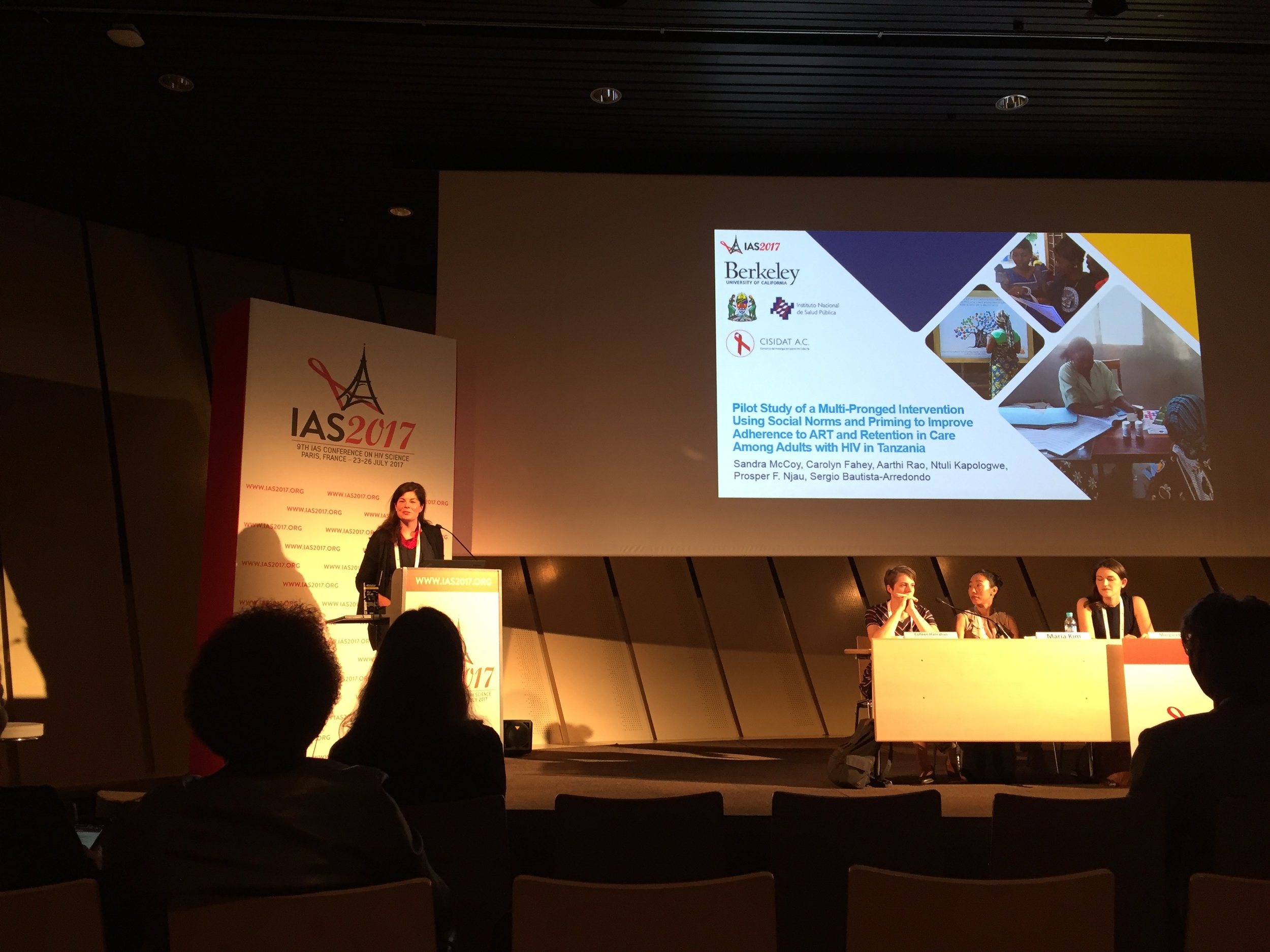


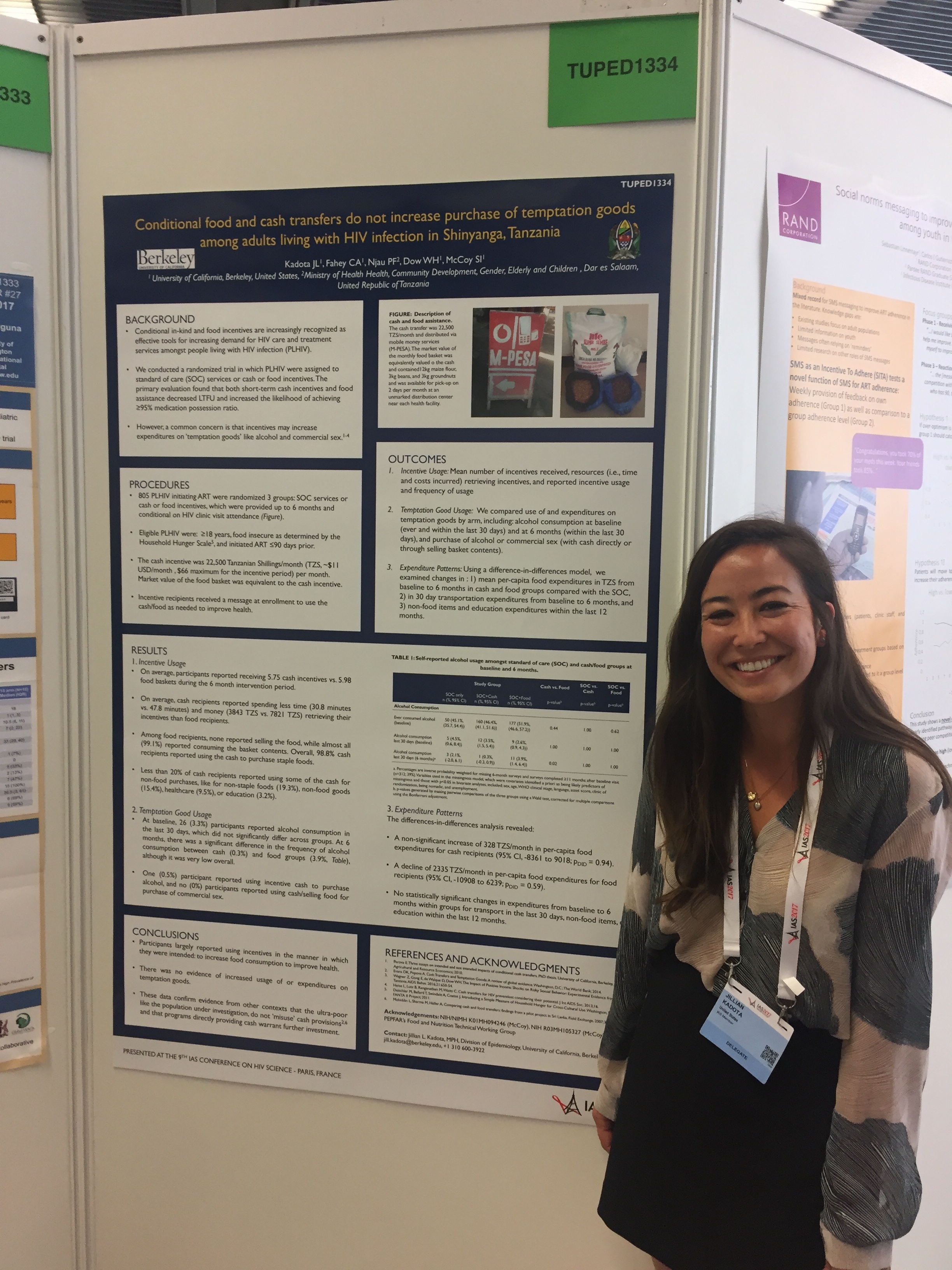
This week our team traveled to Paris for the 9th International AIDS Society Conference on HIV Science where we presented our latest research findings. Doctoral student Carolyn Fahey presented her work on the effects of short-term cash and food assistance on food insecurity and labor force participation among HIV-infected adults in Tanzania (watch her presentation here and see her abstract #TUAD0204 in the abstract book). Recent MPH graduate Jillian Kadota presented an analysis that found that cash transfers do not increase the use of temptation goods like alcohol, a reassuring finding consistent with prior literature on cash transfers. She also presented an analysis which found that cash and food transfers work the best among those who were recently initiated on antiretroviral therapy and among the poorest patients, which may be related to the cost of transportation to the clinic. These data can be used to better design future cash transfer programs for people living with HIV infection in Tanzania and elsewhere. Lastly, we presented the results of our study that used human-centered design to develop an intervention using social norms and priming to improve adherence to antiretroviral therapy and retention in care among adults with HIV in Tanzania (watch the presentation here and read about the full study in PLoS One). We also published a two-part series on this study in the Stanford Social Innovation Review (see Part I and Part II). A very successful week for our research team and we are enthusiastic about incorporating the new ideas and perspectives we learned in Paris into our future work.
Cash and food transfers improve adherence to HIV treatment and care
Our team is thrilled to announce the results of our randomized trial comparing the effectiveness of conditional cash and food transfers to improve adherence to antiretroviral therapy and retention in HIV care among adults in Tanzania. The study found that both food assistance and cash transfers increased adherence to treatment and reduced loss to follow-up, although cash transfers were more effective than food assistance after the incentive period was over. We also found that cash transfers cost less than food transfers, are easier to implement, and are often preferred by patients. The presentation at AIDS 2016 (Durban, South Africa) can be viewed here and the results are available starting January 2017 in the journal AIDS. The study was a collaboration between UC Berkeley, the Shinyanga Regional Medical Office, and the Ministry of Health, Community Development, Gender, Elderly, and Children. It was funded by the U.S. National Institutes of Health.
The food basket evaluated in the study.
Congratulations to Center for Global Public Health Fellows!
Congratulations to graduate students Nancy Czaicki and Chris Andersen, UC Berkeley Center for Global Public Health Fellows. Nancy and Chris presented their research this Thursday at the 2014 Global Health Research Fall Student Symposium; Nancy's talk was "Incentives for ART adherence among people living with HIV in Tanzania: mechanisms of action," and Chris presented "Loss to follow-up among Option B+ patients in Shinyanga, Tanzania." Bravo!
Is cash better than in-kind aid? Let's find out. →
In-kind Aid vs cash transfers. Source: Niehaus, presentation at Center for Global Development, 2014
Next time you donate money to buy a poor family a cow or give a seamstress a loan for starting a small business, ask yourself the following question: would it be more effective to simply give cash? Amanda Glassman, Director of Global Health Policy and Senior Fellow at the Center for Global Development, argues in this blog post that in many cases, cash is cheaper and more effective than in-kind aid. She suggests that funders should find out if their in-kind assistance does more good than cash at achieving their anti-poverty objectives, noting the success of charities like GiveDirectly. Whether the "cash is king" mantra holds in the HIV/AIDS context is the focus of our ongoing study in Tanzania.
Cash, Food, or Vouchers? →
What's the best way to reduce hunger, improve food security, and improve a variety of other health and welfare outcomes? Despite decades of debate about the relative merits of food, cash, or voucher assistance, the most rigorous study ever conducted on the subject finds that there is no one "right" transfer modality. Led by the International Food Policy Research Institute (IFPRI), the randomized experiment was conducted in Ecuador, Uganda, Niger, and Yemen from 2010–2012 and compared the effects of food baskets, cash transfers, and supermarket vouchers. The bottoms line: there's no one-size-fits-all approach to aid.
Researchers found that the relative effectiveness of different modalities depends heavily on contextual factors such as the severity of food insecurity and the thickness of markets for grains and other foods. Furthermore, in three countries cash had the largest impact on dietary diversity, whereas in two countries food had the largest impact on calories available for consumption. The one universal finding: Cash assistance was always significantly more cost-effective to deliver. Watch the IFPRI-WFP Seminar on the study here.


